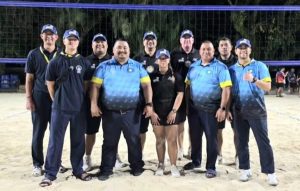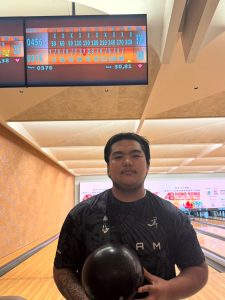
 |
Editor’s note: This article is the third in a series that covers the issues of exercise and the workplace. Part I, Part II
Dear Working Athlete,
I’ve spent most of my life (currently in school) focusing on my athletic goals. My parents want me get a job to help out with the bills, but I am worried I’m not prepared. How do I switch from being an athlete to a “working athlete”?
– Working Rookie
Dear Rookie,
Making the transition from athlete to “working athlete” is a big step in life. At this point people usually decides whether to quit training all together, cut back on their amount training, or make the adjustments to be able to succeed at both. As previously discussed, you can still work and be a successful athlete as long as you make the time (link article 1).
However, sometimes a sacrifice needs to be made in order to be able to financially support yourself or your family. When this happens, it is important to take the same mental approach to your job as you would to your favorite sport.
According to Gerard A. Cruz, President & CEO of Community First, there are certain skill sets gained from participating in sports that can help an athlete succeed in the workplace.
“Sports in general teach a number life lessons, many of which can be applied to the workplace,” said Cruz. “Everything from teamwork, determination and dedication are valuable attributes to have as an employee. Pursuing your athletic goals when you are still physically able is important, but it’s a good idea to have a steady source of income to support yourself or others.”
Brent Butler: From successful runner to successful employee
Brent Butler is a Certified Public Accountant (CPA) and works as a Senior Underwriter at NANBO Insurance Underwriters. After graduating from San Francisco State University in 1999, Butler returned to Guam and began working as an auditor for the Ernst & Young, LLP Guam office, while still representing Guam internationally in track and field.
“(Balancing competing and working) was difficult. Auditors average 50 – 60 hour work weeks during certain times of the year. I had to make time to train by either waking up early in the morning or taking a break from work in the evening to run and then return to the office afterwards. You have to be disciplined and make time,” said Butler.
Butler is arguably the most accomplished runner from Guam. He has represented the island at the IAAF World Championships, South Pacific Games, Oceania Championships and Micronesian Games. While in competing in college, he advanced to the 1996 and 1997 NCAA Division II Outdoor Track & Field National Championships in the 1,500m run, making the finals both years and finishing 11th (1996) and 10th (1997) overall . Butler was also an Academic All-American in cross country.

Brent Butler at the opening ceremony of the 2012 London Olympics. Butler was the track and field coach for team Guam. (courtesy photo)
When Butler was in his prime, he held the Guam national records in the 1500m (3:52.24), 3000m (8:50.30), 3000m steeplechase (9:34.04), 5000m (14:50.85) and 10,000m runs (31:46.67). At the 1999 South Pacific Games, Butler became the first runner male from Guam to ever medal in track and field and would finish with two silvers (5000m and 10,000m runs). (Writer’s note: Butler’s 1500m time was run in 1997 and nobody since has come within four seconds of the record)
Butler’s focus shifted from athletics to work in 2000 to concentrate on studying for the CPA exam. However, he states that athletics prepared him for the working world.
“Sport is a reflection of society. You have to deal with rules, goals, politics, teamwork, conflict, success and disappointment among other things. These things are all common at work,” said Butler. “Furthermore, the work place can be a very competitive place especially when you are working with co-workers in entry level positions, all eager to prove themselves and get promoted.”
BOTTOM LINE:
For most people, playing an organized sport or succeeding in an individual sport will not pay the bills and may not last forever. Use the skills gained from sports and apply them to your career. Set short term and long term goals in your career and monitor your progression in achieving them.
Being a working athlete is not limited to working in an office. You can still find work as an athlete. Get certified in coaching, fitness training, etc. and find work in that field.
Athletic/ Work Skills:
- Teamwork- In the real world, you have to work well with others even if you dislike them. Sports teach you how to work together as a team towards achieving a common goal. In work, the goal is different but still exists.
- Determination- When athletes are focused, there isn’t much that can get in their way. Use that same focus at work. For individual sport athletes, having the qualities of a self-starter is important in their success.
- Pursuing Excellence- “Practice makes perfect” and “perfect practice makes perfect” are common phrases instilled in athletes. You can’t expect to be an expert at your job initially, but should keep in mind that it will take the same level of dedication to be successful at work.
- Mental Toughness- Performing under pressure, heavy criticism, dealing with disappointment and overcoming doubt are familiar situations for athletes. Work deadlines, irate customers, and other uncomfortable circumstances can be handled with confidence for a working athlete.
Until next time, stay active.
-The Working Athlete
The Working Athlete is better known as Derek Mandell. Derek is a two-time Olympian and has bills to pay.


GPS Sports Calendar
July 2025
- SU
- MO
- TU
- WE
- TH
- FR
- SA
Events for June
1st
FD ALUMNI BASKETBALL TOURNAMENT
2025 PACIFIC MINI GAMES
Events for July
2nd
FD ALUMNI BASKETBALL TOURNAMENT
2025 PACIFIC MINI GAMES
Events for July
3rd
FD ALUMNI BASKETBALL TOURNAMENT
2025 PACIFIC MINI GAMES
Events for July
4th
FD ALUMNI BASKETBALL TOURNAMENT
FD ALUMNI BASKETBALL TOURNAMENT
2025 PACIFIC MINI GAMES
Events for July
5th
FD ALUMNI BASKETBALL TOURNAMENT
FD ALUMNI BASKETBALL TOURNAMENT
2025 PACIFIC MINI GAMES
Events for July
6th
FD ALUMNI BASKETBALL TOURNAMENT
FD ALUMNI BASKETBALL TOURNAMENT
2025 PACIFIC MINI GAMES
Events for July
7th
FD ALUMNI BASKETBALL TOURNAMENT
FD ALUMNI BASKETBALL TOURNAMENT
2025 PACIFIC MINI GAMES
Events for July
8th
FD ALUMNI BASKETBALL TOURNAMENT
FD ALUMNI BASKETBALL TOURNAMENT
2025 PACIFIC MINI GAMES
Events for July
9th
FD ALUMNI BASKETBALL TOURNAMENT
FD ALUMNI BASKETBALL TOURNAMENT
2025 PACIFIC MINI GAMES
Events for July
10th
FD ALUMNI BASKETBALL TOURNAMENT
FD ALUMNI BASKETBALL TOURNAMENT
Events for July
18th
- 20
- 21
- 22
- 23
- 24
- 25
- 26
Events for July
19th
Events for July
20th
Events for July
21st
Events for July
22nd
Events for July
23rd
Events for July
24th
Events for July
25th
- 27
- 28
- 29
- 30
- 31
- 1
- 2
Events for July
26th
Events for July
27th
Events for July
28th
Events for July
29th
Events for July
30th

Wrestling
SUSAKI SHARES OLYMPIC GOLD KNOWLEDGE

Pacific Mini Games
PACIFIC MINI GAMES COMES TO A CLOSE

Pacific Mini Games
KENT WINS 2ND GOLD OF MINI GAMES

Weightlifting
OLYMPIC GOLD MEDALIST TO SHARE WRESTLING KNOWLEDGE

Pacific Mini Games
SOFTBALL COMES UP BIG OVER PALAU 11-4

Pacific Mini Games
BADEN WINS GOLD #3 FOR GUAM IN 5K

Pacific Mini Games
BASEBALL ADVANCES TO GOLD MEDAL GAME

Volleyball
GUAHAN BOYS WIN NATIONAL CLUB CHAMPIONSHIP
COMING SOON …
FD Alumni Basketball Tournament Playoffs



















